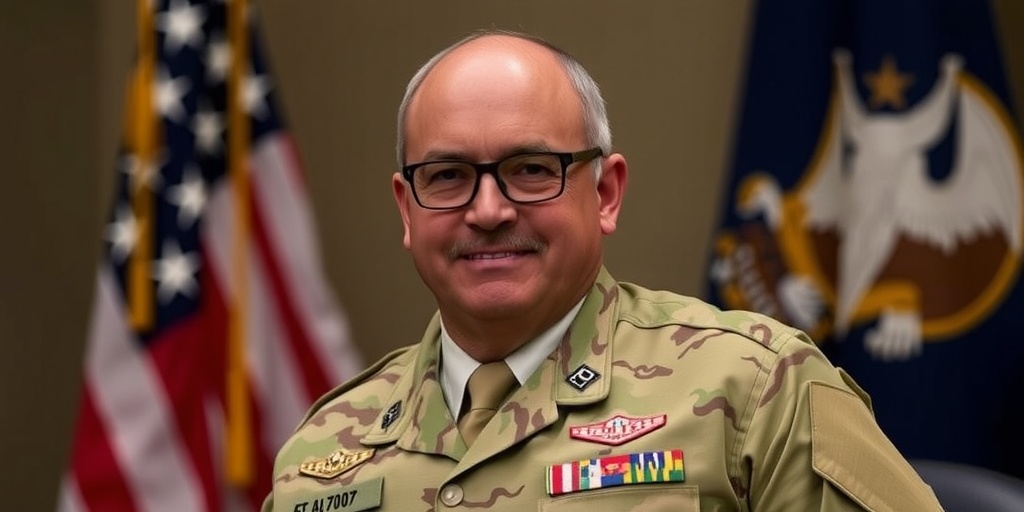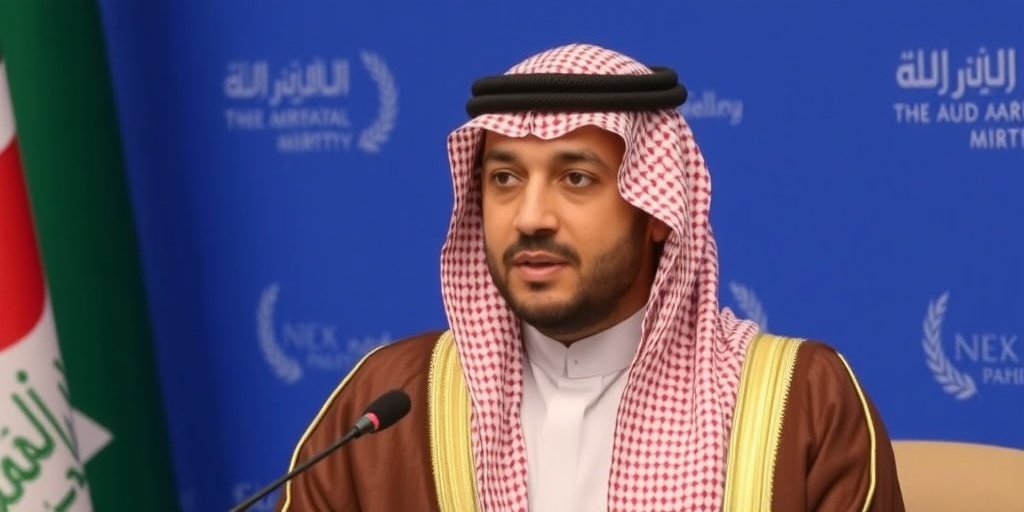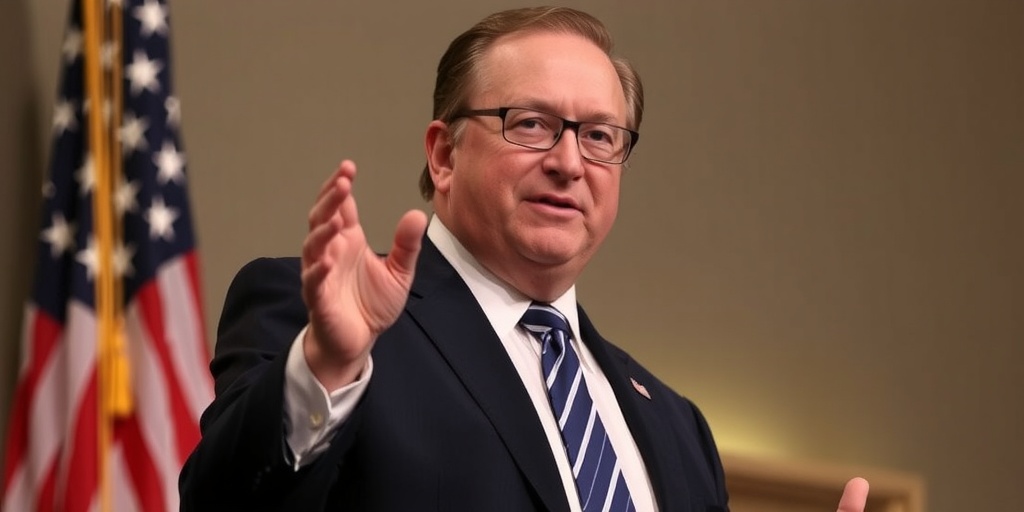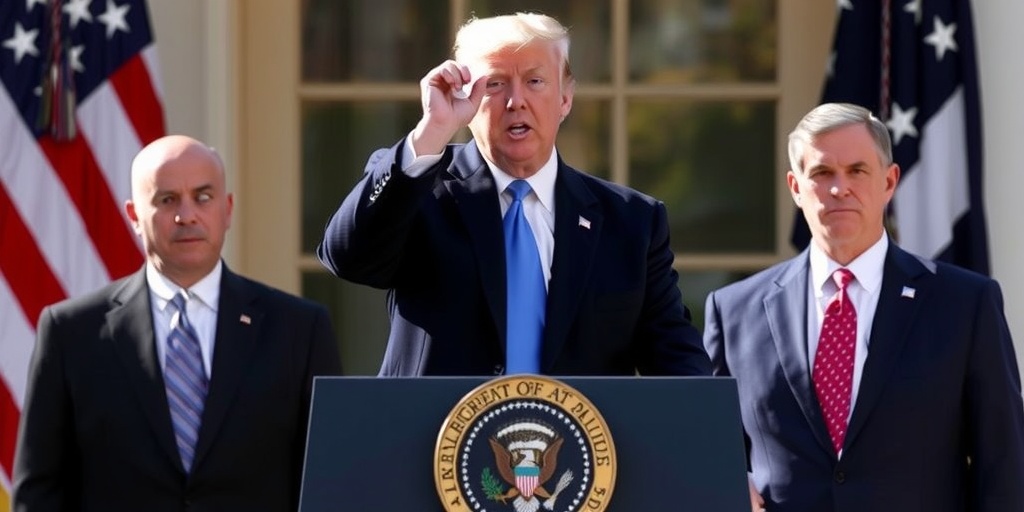Now Reading: Army Secretary Appoints New A.T.F. Head
-
01
Army Secretary Appoints New A.T.F. Head
Army Secretary Appoints New A.T.F. Head

Major Leadership Change at the A.T.F.: Former F.B.I. Director Kash Patel Replaced by Daniel Driscoll
In a surprising turn of events, Kash Patel, who was serving as the interim director of the Bureau of Alcohol, Tobacco, Firearms and Explosives (A.T.F.), has been removed from his position and replaced by Daniel Driscoll, the current Army secretary. This decision, revealed by four individuals familiar with the situation, marks an unprecedented shift as a civilian military leader takes the helm of a key domestic law enforcement agency.
The decision to replace Patel was made by White House officials in late February, shortly after his appointment as the A.T.F. director. According to insiders, the primary reason for this swift change was the belief that managing both the A.T.F. and F.B.I. would prove too demanding for a single individual. Driscoll, who has been confirmed by the Senate as a Trump appointee, was considered one of the only viable candidates for the role. His close ties to Vice President JD Vance further solidified his selection for this crucial post at a time when the A.T.F. has been facing serious challenges.
Daniel Driscoll, an Iraq war veteran, learned about his new responsibilities over the past week while traveling in Germany. Although he was not immediately available for comment upon the announcement, a Defense Department official confirmed that Driscoll had assumed the interim leadership of the A.T.F. with little prior notice. The exact timeline of when Driscoll officially began his new duties remains unclear, but the shift has left many within the agency taken aback.
The abrupt nature of this change has raised eyebrows among A.T.F. staff, many of whom were reportedly stunned by the news. The announcement was made to A.T.F. supervisors on the morning of the leadership switch, raising concerns that this transition could significantly alter the agency’s mission at a critical time. The A.T.F. has already been under pressure, with hundreds of its firearm investigators reassigned to assist with immigration enforcement efforts, thus diverting focus from their core responsibilities.
While Patel’s appointment had initially been met with skepticism due to his previous role as a Trump campaign advocate, Driscoll’s assumption of control represents an entirely new dynamic. The situation at the A.T.F., currently seen as chaotic and lacking strong leadership, has become even more complicated with this recent decision. Patel has primarily focused on his responsibilities within the F.B.I. and the Justice Department and it was revealed that there are ongoing discussions about a potential merger between the A.T.F. and the Drug Enforcement Administration (D.E.A.). Such a merger has left the career leadership within the A.T.F. feeling demoralized, although analysts agree that drastic changes are not likely to be implemented in the immediate future.
Many within the agency express concern that the proposed unification of the A.T.F. and D.E.A. might serve as a pretext for reducing the capabilities of both agencies, which are already among the smallest and most underfunded divisions within the Justice Department. The departure of Patel has cast additional doubts on employee morale, suggesting that the A.T.F. may continue to struggle under uncertain leadership.
In addition to the leadership shake-up, Attorney General Pam Bondi, facing pressure from gun rights organizations, has announced plans to eliminate the A.T.F.’s "zero tolerance" policy. Introduced four years ago, this policy mandates the revocation of federal licenses for firearms dealers who have repeatedly violated federal laws and regulations. The move reflects a broader trend towards re-evaluating A.T.F. policies implemented under the Biden administration.
Bondi has also tasked Patel with reviewing two significant policies that were enacted under the previous administration. One of these policies involves a ban on pistol braces designed to convert handguns into weapons that resemble rifles, while the other establishes the requirement for background checks on private gun sales. These reviews signal a potential shift in the agency’s focus and approach to gun regulation.
With this leadership change at the A.T.F. and the looming uncertainty regarding its future direction, the agency faces a critical juncture. Stakeholders are keenly watching how Driscoll’s leadership will unfold and what changes may occur in the realm of national firearms regulation. The implications of these developments will likely resonate throughout the law enforcement community and related federal agencies, as well as influence public perception and policy regarding gun control in the coming months.
Stay Informed With the Latest & Most Important News
Previous Post
Next Post
-
 01New technology breakthrough has everyone talking right now
01New technology breakthrough has everyone talking right now -
 02Unbelievable life hack everyone needs to try today
02Unbelievable life hack everyone needs to try today -
 03Fascinating discovery found buried deep beneath the ocean
03Fascinating discovery found buried deep beneath the ocean -
 04Man invents genius device that solves everyday problems
04Man invents genius device that solves everyday problems -
 05Shocking discovery that changes what we know forever
05Shocking discovery that changes what we know forever -
 06Internet goes wild over celebrity’s unexpected fashion choice
06Internet goes wild over celebrity’s unexpected fashion choice -
 07Rare animal sighting stuns scientists and wildlife lovers
07Rare animal sighting stuns scientists and wildlife lovers





















